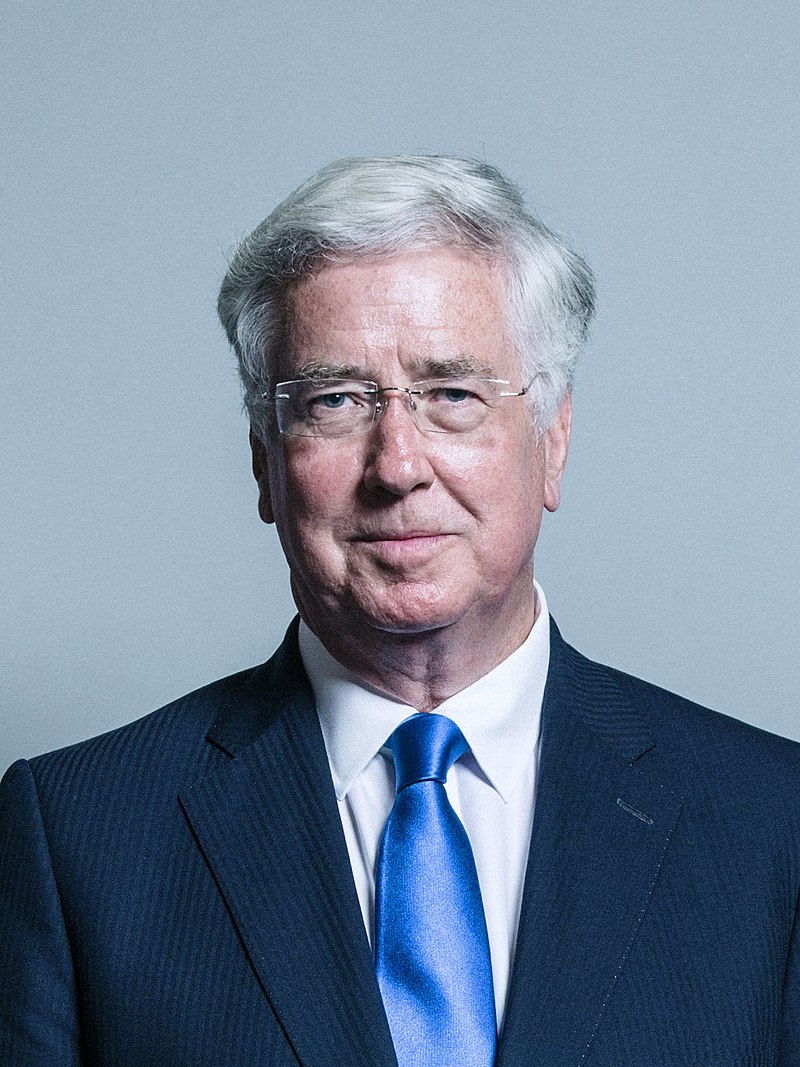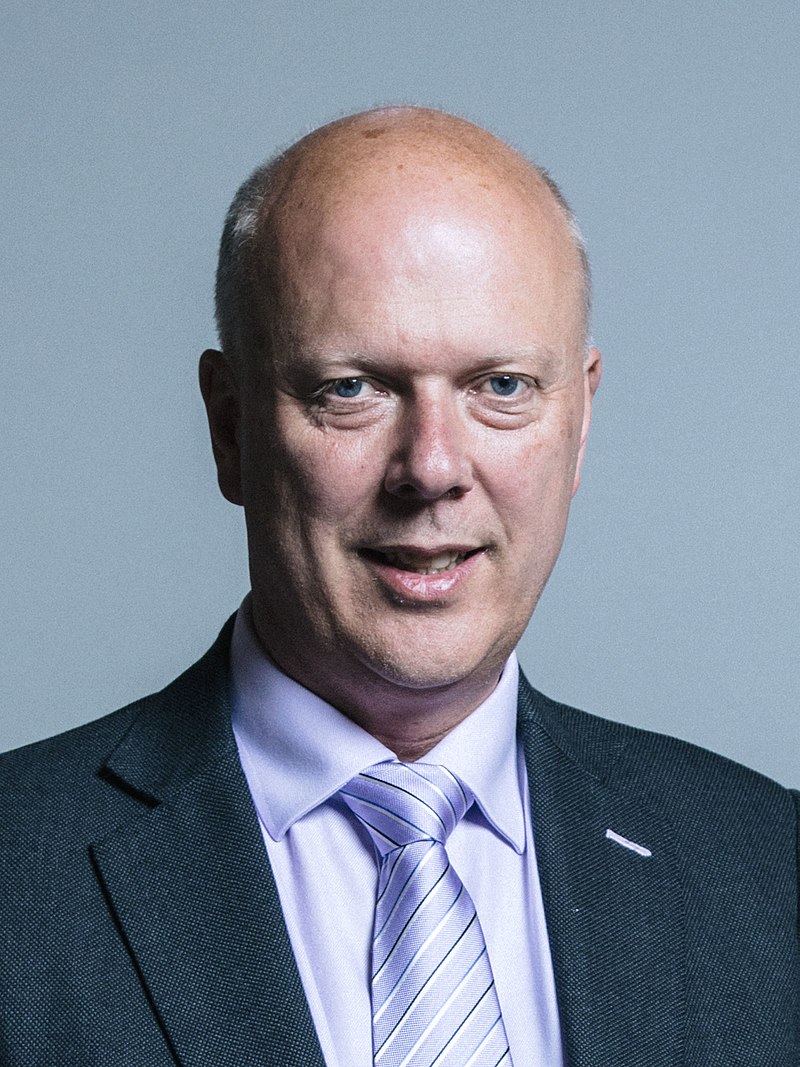Tories stagger from one crisis to another
by Scott McDonald
The Tory government in Britain is staggering from one crisis to another. The list of issues includes the Grenfell Tower fire, the shambolic state of the rail system, the NHS crisis, the Windrush scandal, the collapse of Carillion and the Brexit negotiations.
Theresa May has lost close friends and allies, Amber Rudd and Damien Green, from her cabinet and before them Defence Secretary Michael Fallon. Chris Grayling could be next to go.
Grayling, Transport Secretary, is in charge of Britain’s rail system, which is in deep crisis after years of privatisation and fragmentation. Thousands of trains have been cancelled or delayed across great swathes of the country as new timetables are introduced bringing misery to thousands of people. It is reported that people are losing their jobs because they have been late for work so often.
Virgin East Coast has had its franchise withdrawn, the third instance of the East Coast franchise being removed. Virgin East Coast, which is owned by Stagecoach (90%) and Virgin (10%), had its contract terminated in June and its operations were passed to the government-owned operator of last resort, London North Eastern Railway (LNER).
Four other private rail companies are teetering on the brink of collapse.
Meanwhile the rail unions have been taking industrial action for over two years to put safety first rather than private profits.
The call for rail nationalisation grows stronger and louder as the crisis deepens and already has majority public support. The Tories have lost the argument and are faced with an ever-deepening crisis on the railways. Grayling may have to be sacrificed.
WINDRUSH SCANDAL
Amber Rudd was forced to resign as Home Secretary when an audit of documents threw up several memos to and from Rudd discussing targets for deportations for 2018-2019. These memos included one she wrote to Prime Minister May setting-out her intention to increase deportations by 10%.
The revelation sharpened the focus on the role of the Prime Minister, the architect of the “hostile environment” policy that ended up persecuting the Windrush generation.
In 1948 the ex-troopship ‘Empire Windrush’, arrived at Tilbury Docks from Jamaica with 482 Jamaicans on board, emigrating to Britain. These were the first group of migrants from the West Indies to help re-build post-war Britain and many others followed from all over the Commonwealth.
A 1971 law gave them indefinite leave to remain in Britain. Over the years since, they and their families have made a great contribution to British society. However, many did not formalise their status because they were children who arrived on their parent’s passports and never applied for their own.
Some of these, in the “hostile environment” created by Mrs May, have suffered abominably. Anthony Brian, who lives in Edmonton, North London, decided to go abroad after 50 years living in Britain. As a consequence of not having the ‘correct’ papers he subsequently lost his job, was detained twice and was almost deported to Jamaica, a place he does not know. His case is far from unique.
The Tory government was forced into making an apology to the Windrush generation and then when Rudd was found to be lying about deportation targets she resigned.
NHS
The National Health Service in the UK is under pressure, underfunded and understaffed. The growing crisis is blamed on an aging population by the Tory government. However, if one compares the UK healthcare system with other countries it becomes obvious that government policy is the problem leading to a system in crisis.
The UK has historically spent less on health when compared with the Organisation for Economic Cooperation and Development averages. U.K. health spending per head is markedly lower than other countries such as France, Germany, Sweden and the Netherlands.
The figures for the number of hospital beds shows this dramatically.
Hospital beds per 1000 people [i]
|
Country |
Beds per 1000 people |
|
Germany |
8.13 |
|
Poland |
6.63 |
|
France |
6.13 |
|
Italy |
3.2 |
|
Spain |
2.98 |
|
Turkey |
2.68 |
|
UK |
2.61 |
The social care system is in meltdown, there is a lengthening of queues for treatment and the NHS uses agency staff at a huge cost. High rates charged by agencies are a problem but the staff shortages in the NHS are the root of the problem.
Mark Porter, the British Medical Association council chairman, says reliance on agency staff is a “sign of stress on the system and the result of poor workforce planning by government. We need to address the root causes of the recruitment and retention problem in many parts of the NHS”. [ii]
Peter Carter, chief executive and general secretary of the Royal College of Nursing, said that instead of relying on agencies, efforts should be made to retain a skilled and experienced workforce. He said, “A lack of investment in nurse training and cuts to nurse numbers mean that trusts now have no choice but to pay over the odds for agency staff and recruiting overseas.” [iii]
Jeremy Hunt, the government Health Secretary, introduced curbs on the use of employment agencies in the National Health Service, but then scrapped NHS bursaries for student nurses, midwives and allied professionals and replaced it with tuition fees and loans in August 2017. Since the change UCAS revealed a 23% reduction in applications in England for courses beginning the following term.
CARILLION
Carillion was the UK’s second biggest construction company until its collapse. It went into liquidation in January 2018 with liabilities of nearly £7 billion and just £29 million in cash. Yet it had paid a record dividend of £79 million and large bonuses to senior executives for performance in 2016.”
Thousands of people lost their jobs, it left a giant pension deficit and huge debts. Much of its work was on public sector contracts and its collapse brought into focus the disastrous nature of PFI. It also highlighted the corrupt relations between big business and the Big Four accountancy and audit firms.
a House of Commons joint committee investigated the collapse of Carillion and its report is devastating in its criticisms.
“Carillion’s business model was an unsustainable dash for cash. The mystery is not that it collapsed, but how it kept going for so long.”[iv]
“Richard Adam, as Finance Director between 2007 and 2016, was the architect of Carillion’s aggressive accounting policies. His voluntary departure at the end of 2016 was, for him, perfectly timed. He then sold all his Carillion shares for £776,000, just before... their value plummeted. These were the actions of a man who knew exactly where the company was heading once it was no longer propped up by his accounting tricks.”
The Report is also highly critical of its auditor, KPMG, advisers including Deloitte and EY as well as the Pension Regulator.
“KPMG audited Carillion for 19 years, pocketing £29 million in the process… KPMG should take its own share of responsibility for the consequences.”
“By the end, a whole suite of advisors... were squeezing fee income out of what remained of the company. £6.4 million disappeared on the last working day as the directors pleaded for a taxpayer bailout. Chief among the beneficiaries was EY, paid £10.8 million for its six months of failed turnaround advice as Carillion moved inexorably towards collapse. The Pensions Regulator’s feeble response to the underfunding of Carillion’s pension scheme was a threat to impose a contribution schedule, a power it had never – and still has never – used…The Pensions Regulator failed in all its objectives regarding the Carillion pension scheme. Scheme members will receive reduced pensions. The Pension Protection Fund and its levy payers will pick up their biggest bill ever.”
The Report in its findings is not just a critique of how Carillion was managed but it exposes the corrupt relationship between Big Business, the accountancy Big Four, and the various so-called Regulators. The Tory Government was still awarding huge contracts to Carillion after it became clear that it was in deep financial trouble.
The report by the two House of Commons committees is in fact an indictment of 21st century British capitalism.
[i]OECD Data at www.data.oecd.org
[ii]Guardian, 3 June 2015.
[iii]Ibid.
[iv] Joint report, Work and Pensions Committee/Business, Energy and Industrial Strategy committee, UK Parliament, 26 May 2018.

After a deepening crisis on the railways - calls for rail nationalisation grow

"The house of commons joint committees' report...exposes the corrupt relationship between Big Business, the accountancy Big Four, and the various regulators.
The Government was still awarding huge contracts to Carillion after it became clear that it was in deep financial trouble. The report is...an indictment of 21st century British capitalism."

GONE - Sir Micheal Fallon

GONE - Damien Green

GONE - Amber Rudd

NEXT TO GO? Chris Grayling






